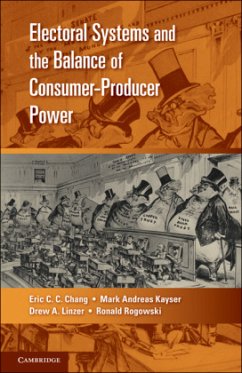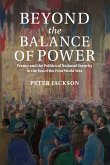This book investigates the effects of electoral systems on the relative legislative and, hence, regulatory influence of competing interests in society. Building on Ronald Rogowski and Mark Andreas Kayser's extension of the classic Stigler-Peltzman model of regulation, the authors demonstrate that majoritarian electoral arrangements should empower consumers relative to producers. Employing real price levels as a proxy for consumer power, the book rigorously establishes this proposition over time, within the OECD, and across a large sample of developing countries. Majoritarian electoral arrangements depress real prices by approximately ten percent, all else equal. The authors carefully construct and test their argument and broaden it to consider the overall welfare effects of electoral system design and the incentives of actors in the choice of electoral institutions.
Hinweis: Dieser Artikel kann nur an eine deutsche Lieferadresse ausgeliefert werden.
Hinweis: Dieser Artikel kann nur an eine deutsche Lieferadresse ausgeliefert werden.
"Government policies create winners and losers. A central question in both politics and political science is how the political system affects who wins and who loses from the battle over policy. In Electoral Systems and the Balance of Consumer-Producer Power, four leading scholars assess the impact of electoral structures on one crucial dimension of this distributional conflict, between consumers and producers. They present a forceful, theoretically grounded, argument that majoritarian systems tend to favor consumers. They go on to provide persuasive evidence, across dozens of countries, that this pro-consumer bias is reflected in relative prices. This elegant, powerful, book will be essential reading for all students of Comparative Politics and Political Economy."
-Jeffry Frieden, Harvard University
-Jeffry Frieden, Harvard University








